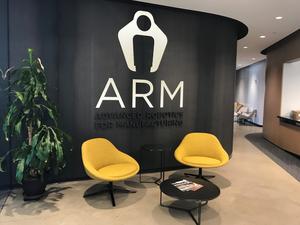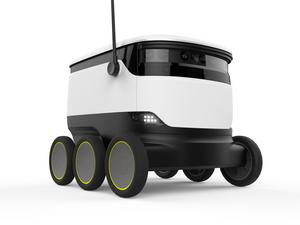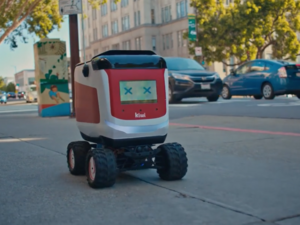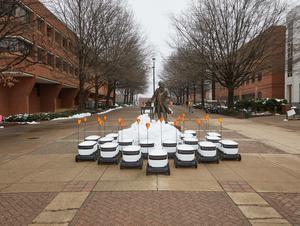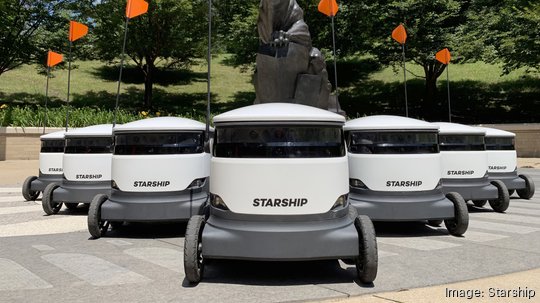
Over the past few years, all across the globe and in Pittsburgh, universities and companies have been testing and utilizing sidewalk robots to deliver food. A new study from Carnegie Mellon University's computer science school found that these public service robots could be used for more than just deliveries, but that these robots could also cause problems for people with disabilities.
"[Sidewalk robot's] operation on public paths poses challenges for people with mobility disabilities who face barriers to accessibility, such as insufficient curb cuts," the report reads. "Our study aims to set the stage for a more inclusive future around public service robots."
Oakland has been a testing ground for multiple different personal service deliver robots over the past few years. One company, Starship Technologies, caused an incident that brought the company and its partner, the University of Pittsburgh, widespread attention from disability activists.
In 2019, one of Starship's autonomous delivery robots went inactive on the curb cut of a corner of Forbes Avenue in Oakland, blocking the path. Emily Ackerman, a disabled individual and at the time a doctoral student at Pitt, was briefly trapped in the road before having to "force" her way up the side of the curb.
"I was so upset that this robot had put me in danger," Ackerman said in a presentation at CMU reflecting on the incident.
The incident received widespread social media attention and Pitt then temporarily paused testing to "review the technology further and ensure everyone's safety." The robots were back on the street months later, but then the university paused the partnership indefinitely. Similar incidents have been reported on other college campuses, including a Starship robot blocking a fire escape at the University of Wisconsin-Madison.
During her aforementioned presentation reflecting on the incident, Ackerman noted that some misconceived her frustration with the incident as frustration with the technology.
"In their best iteration, I would love to have a food robot," Ackerman said during the presentation. "It would be great for disabled people."
The study concludes that in order to address accessibility needs, technology companies need to incorporate disabled individuals in the development process, not after an incident occurs.
"The roboticists that we spoke with suggested that such challenges could only be solved with early and deep participations of people with mobility disabilities, which current robotics practice may fail to do due to resource constraints and a problematic mindset of patching accessibility only after the issues and harms have unfolded in real-world encounters," the report reads. "We believe that solving robot accessibility issues will require involving broader stakeholders when designing a robot and developing better public policy and regulations for robots, robotics practitioners and the urban space."
The study connected individuals with disabilities with robotics practitioners to foster discussion on how these robots can benefit individuals with disabilities, rather than risk burdening them. Ideas generated included clearing sidewalks of snow, reporting blocked traffic and transporting items for individuals with limited carrying capacity.
